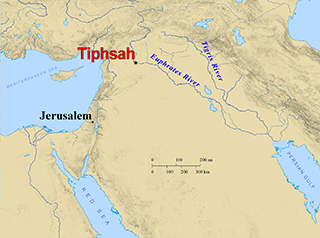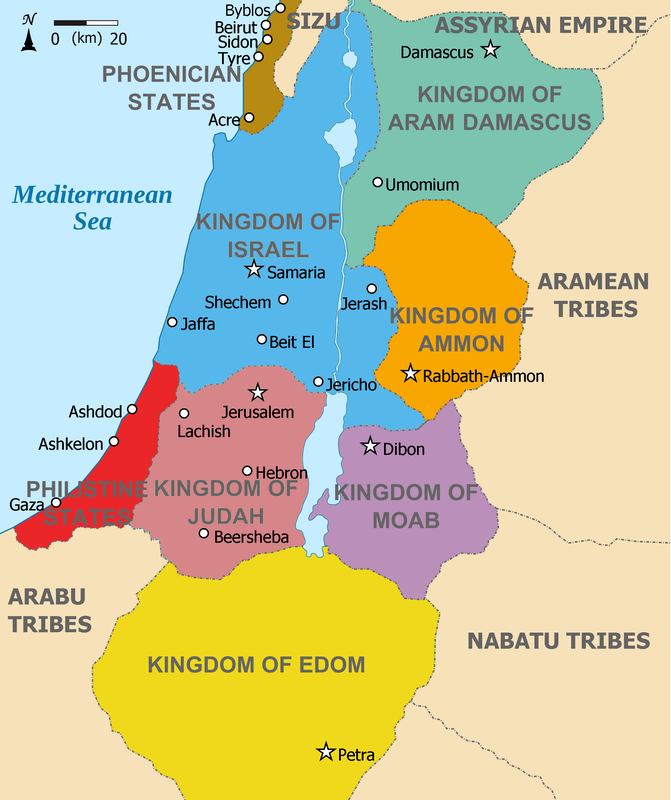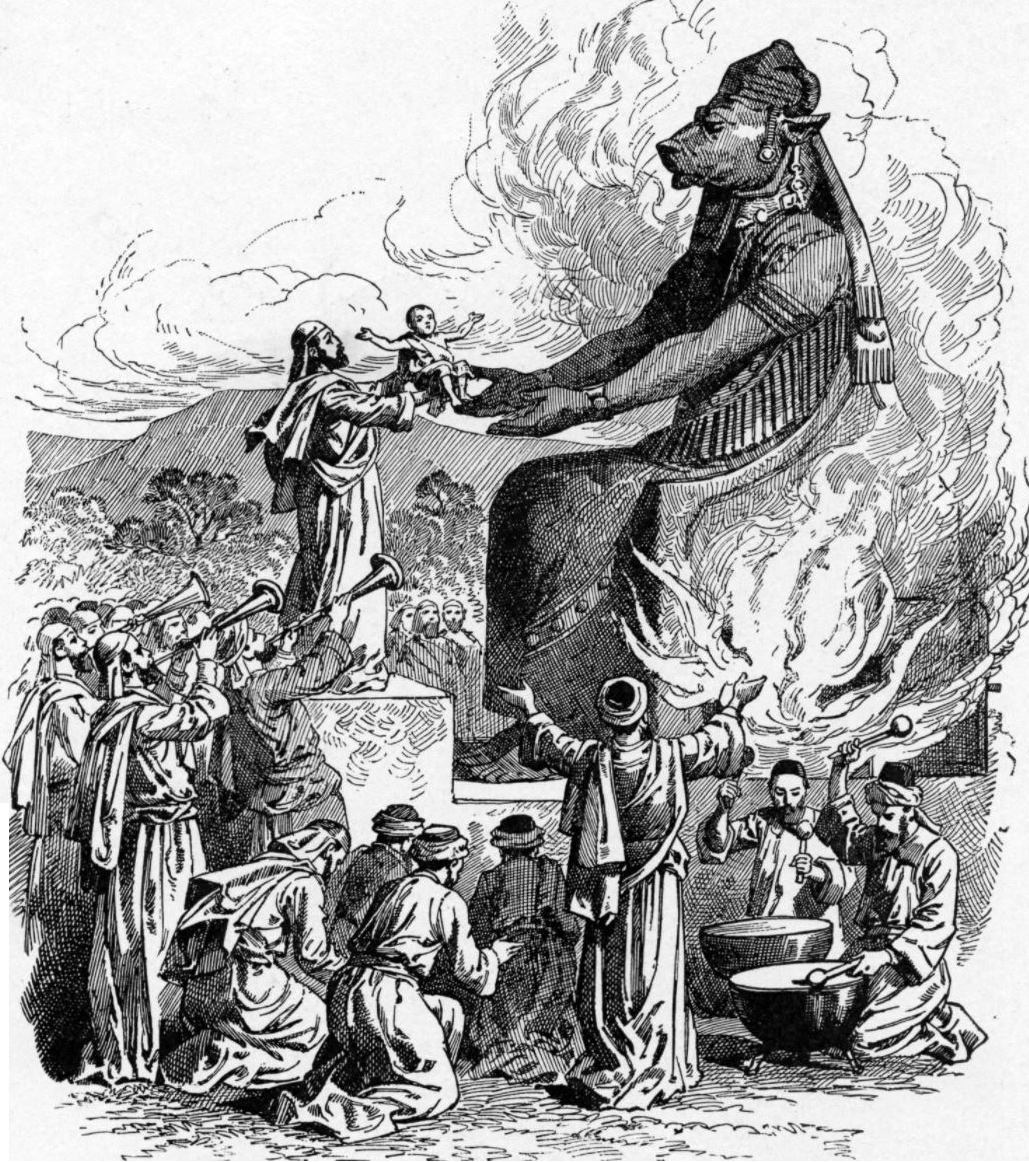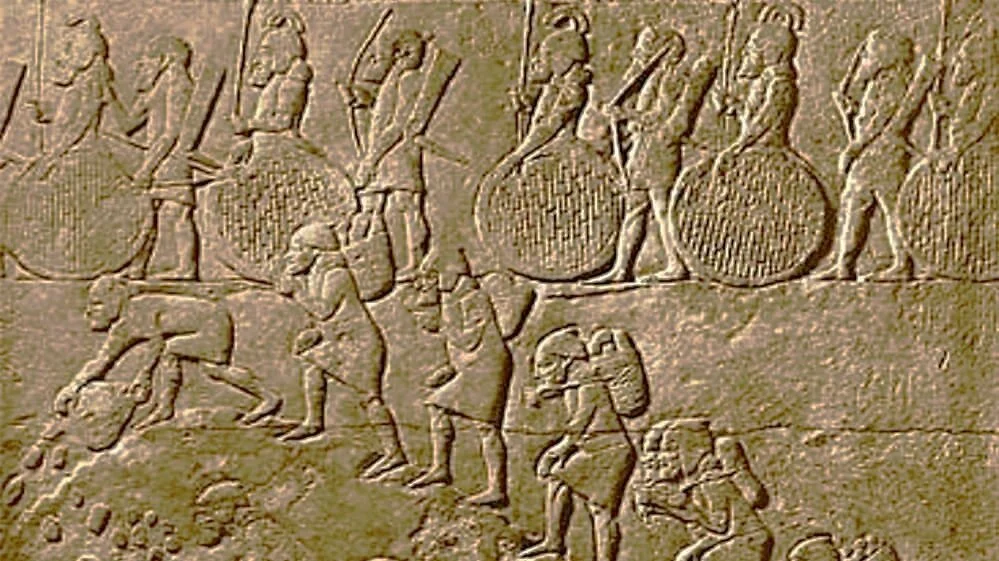As we enter the narrative offered in the books of the Kings, the nation of Israel is at the peak of its power and influence. By the end of the story, the children of God have become a captive people, living far from the land promised to Abraham, conquered by Joshua and ruled by David. Join us as we explore Israel’s decline and fall and God’s relationship with his rebellious children. During this series, we’ll consider the following:
- Session 1 - Solomon Takes Charge (1 Kings 1:1–2:46)
- Session 2 - Solomon the King (1 Kings 3:1–5:18)
- Session 3 - The Temple (1 Kings 6:1–8:66)
- Session 4 - The Glory and the Demise (1 Kings 9:1–11:43)
- Session 5 - A Hostile Divorce (1 Kings 12:1–14:20)
- Session 6 - Kings of Judah and Israel (1 Kings 14:21–16:34)
- Session 7 - Elijah and the Living God (1 Kings 17:1–19:21)
- Session 8 - The End of Ahab (1 Kings 20:1–22:40)
- Session 9 - Jehoshaphat, Ahaziah and Elisha (1 Kings 22:41–2 Kings 2:25)
- Session 10 - Elisha’s Life and Ministry (2 Kings 3:1–5:27)
- Session 11 - Elisha and the King (2 Kings 6:1–8:29)
- Session 12 - Jehu and Joash (2 Kings 9:1–12:21)
- Session 13 - The Dynasty of Jehu (2 Kings 13:1–15:7)
- Session 14 - The Fall of Israel (2 Kings 15:8–17:41)
- Session 15 - Hezekiah and Manasseh (2 Kings 18:1–21:26)
- Session 16 - The Josianic Reformation (2 Kings 22:1–23:30)
- Session 17 - The End (2 Kings 23:31–25:30)
During our fourteenth session, we discussed the fall of Israel (2 Kings 15:8–17:41). Below is a recording of our discussion and the passage we discussed.
2 Kings 15:8–17:41 [New Revised Standard Version]
In the thirty-eighth year of King Azariah of Judah, Zechariah son of Jeroboam reigned over Israel in Samaria six months. He did what was evil in the sight of the Lord, as his ancestors had done. He did not depart from the sins of Jeroboam son of Nebat, which he caused Israel to sin. Shallum son of Jabesh conspired against him, and struck him down in public and killed him, and reigned in place of him. Now the rest of the deeds of Zechariah are written in the Book of the Annals of the Kings of Israel. This was the promise of the Lord that he gave to Jehu, “Your sons shall sit on the throne of Israel to the fourth generation.” And so it happened. Shallum son of Jabesh began to reign in the thirty-ninth year of King Uzziah of Judah; he reigned one month in Samaria. Then Menahem son of Gadi came up from Tirzah and came to Samaria; he struck down Shallum son of Jabesh in Samaria and killed him; he reigned in place of him. Now the rest of the deeds of Shallum, including the conspiracy that he made, are written in the Book of the Annals of the Kings of Israel. At that time Menahem sacked Tiphsah, all who were in it and its territory from Tirzah on; because they did not open it to him, he sacked it. He ripped open all the pregnant women in it. In the thirty-ninth year of King Azariah of Judah, Menahem son of Gadi began to reign over Israel; he reigned ten years in Samaria. He did what was evil in the sight of the Lord; he did not depart all his days from any of the sins of Jeroboam son of Nebat, which he caused Israel to sin. King Pul of Assyria came against the land; Menahem gave Pul a thousand talents of silver, so that he might help him confirm his hold on the royal power. Menahem exacted the money from Israel, that is, from all the wealthy, fifty shekels of silver from each one, to give to the king of Assyria. So the king of Assyria turned back, and did not stay there in the land. Now the rest of the deeds of Menahem, and all that he did, are they not written in the Book of the Annals of the Kings of Israel? Menahem slept with his ancestors, and his son Pekahiah succeeded him. In the fiftieth year of King Azariah of Judah, Pekahiah son of Menahem began to reign over Israel in Samaria; he reigned two years. He did what was evil in the sight of the Lord; he did not turn away from the sins of Jeroboam son of Nebat, which he caused Israel to sin. Pekah son of Remaliah, his captain, conspired against him with fifty of the Gileadites, and attacked him in Samaria, in the citadel of the palace along with Argob and Arieh; he killed him, and reigned in place of him. Now the rest of the deeds of Pekahiah, and all that he did, are written in the Book of the Annals of the Kings of Israel. In the fifty-second year of King Azariah of Judah, Pekah son of Remaliah began to reign over Israel in Samaria; he reigned twenty years. He did what was evil in the sight of the Lord; he did not depart from the sins of Jeroboam son of Nebat, which he caused Israel to sin. In the days of King Pekah of Israel, King Tiglath-pileser of Assyria came and captured Ijon, Abel-beth-maacah, Janoah, Kedesh, Hazor, Gilead, and Galilee, all the land of Naphtali; and he carried the people captive to Assyria. Then Hoshea son of Elah made a conspiracy against Pekah son of Remaliah, attacked him, and killed him; he reigned in place of him, in the twentieth year of Jotham son of Uzziah. Now the rest of the acts of Pekah, and all that he did, are written in the Book of the Annals of the Kings of Israel.
In the second year of King Pekah son of Remaliah of Israel, King Jotham son of Uzziah of Judah began to reign. He was twenty-five years old when he began to reign and reigned sixteen years in Jerusalem. His mother’s name was Jerusha daughter of Zadok. He did what was right in the sight of the Lord, just as his father Uzziah had done. Nevertheless the high places were not removed; the people still sacrificed and made offerings on the high places. He built the upper gate of the house of the Lord. Now the rest of the acts of Jotham, and all that he did, are they not written in the Book of the Annals of the Kings of Judah? In those days the Lord began to send King Rezin of Aram and Pekah son of Remaliah against Judah. Jotham slept with his ancestors, and was buried with his ancestors in the city of David, his ancestor; his son Ahaz succeeded him.
In the seventeenth year of Pekah son of Remaliah, King Ahaz son of Jotham of Judah began to reign. Ahaz was twenty years old when he began to reign; he reigned sixteen years in Jerusalem. He did not do what was right in the sight of the Lord his God, as his ancestor David had done, but he walked in the way of the kings of Israel. He even made his son pass through fire, according to the abominable practices of the nations whom the Lord drove out before the people of Israel. He sacrificed and made offerings on the high places, on the hills, and under every green tree.
Then King Rezin of Aram and King Pekah son of Remaliah of Israel came up to wage war on Jerusalem; they besieged Ahaz but could not conquer him. At that time the king of Edom recovered Elath for Edom, and drove the Judeans from Elath; and the Edomites came to Elath, where they live to this day. Ahaz sent messengers to King Tiglath-pileser of Assyria, saying, “I am your servant and your son. Come up, and rescue me from the hand of the king of Aram and from the hand of the king of Israel, who are attacking me.” Ahaz also took the silver and gold found in the house of the Lord and in the treasures of the king’s house, and sent a present to the king of Assyria. The king of Assyria listened to him; the king of Assyria marched up against Damascus, and took it, carrying its people captive to Kir; then he killed Rezin.
When King Ahaz went to Damascus to meet King Tiglath-pileser of Assyria, he saw the altar that was at Damascus. King Ahaz sent to the priest Uriah a model of the altar, and its pattern, exact in all its details. The priest Uriah built the altar; in accordance with all that King Ahaz had sent from Damascus, just so did the priest Uriah build it, before King Ahaz arrived from Damascus. When the king came from Damascus, the king viewed the altar. Then the king drew near to the altar, went up on it, and offered his burnt offering and his grain offering, poured his drink offering, and dashed the blood of his offerings of well-being against the altar. The bronze altar that was before the Lord he removed from the front of the house, from the place between his altar and the house of the Lord, and put it on the north side of his altar. King Ahaz commanded the priest Uriah, saying, “Upon the great altar offer the morning burnt offering, and the evening grain offering, and the king’s burnt offering, and his grain offering, with the burnt offering of all the people of the land, their grain offering, and their drink offering; then dash against it all the blood of the burnt offering, and all the blood of the sacrifice; but the bronze altar shall be for me to inquire by.” The priest Uriah did everything that King Ahaz commanded.
Then King Ahaz cut off the frames of the stands, and removed the laver from them; he removed the sea from the bronze oxen that were under it, and put it on a pediment of stone. The covered portal for use on the sabbath that had been built inside the palace, and the outer entrance for the king he removed from the house of the Lord. He did this because of the king of Assyria. Now the rest of the acts of Ahaz that he did, are they not written in the Book of the Annals of the Kings of Judah? Ahaz slept with his ancestors, and was buried with his ancestors in the city of David; his son Hezekiah succeeded him.
In the twelfth year of King Ahaz of Judah, Hoshea son of Elah began to reign in Samaria over Israel; he reigned nine years. He did what was evil in the sight of the Lord, yet not like the kings of Israel who were before him. King Shalmaneser of Assyria came up against him; Hoshea became his vassal, and paid him tribute. But the king of Assyria found treachery in Hoshea; for he had sent messengers to King So of Egypt, and offered no tribute to the king of Assyria, as he had done year by year; therefore the king of Assyria confined him and imprisoned him. Then the king of Assyria invaded all the land and came to Samaria; for three years he besieged it. In the ninth year of Hoshea the king of Assyria captured Samaria; he carried the Israelites away to Assyria. He placed them in Halah, on the Habor, the river of Gozan, and in the cities of the Medes.
This occurred because the people of Israel had sinned against the Lord their God, who had brought them up out of the land of Egypt from under the hand of Pharaoh king of Egypt. They had worshiped other gods and walked in the customs of the nations whom the Lord drove out before the people of Israel, and in the customs that the kings of Israel had introduced. The people of Israel secretly did things that were not right against the Lord their God. They built for themselves high places at all their towns, from watchtower to fortified city; they set up for themselves pillars and sacred poles on every high hill and under every green tree; there they made offerings on all the high places, as the nations did whom the Lord carried away before them. They did wicked things, provoking the Lord to anger; they served idols, of which the Lord had said to them, “You shall not do this.” Yet the Lord warned Israel and Judah by every prophet and every seer, saying, “Turn from your evil ways and keep my commandments and my statutes, in accordance with all the law that I commanded your ancestors and that I sent to you by my servants the prophets.” They would not listen but were stubborn, as their ancestors had been, who did not believe in the Lord their God. They despised his statutes, and his covenant that he made with their ancestors, and the warnings that he gave them. They went after false idols and became false; they followed the nations that were around them, concerning whom the Lord had commanded them that they should not do as they did. They rejected all the commandments of the Lord their God and made for themselves cast images of two calves; they made a sacred pole, worshiped all the host of heaven, and served Baal. They made their sons and their daughters pass through fire; they used divination and augury; and they sold themselves to do evil in the sight of the Lord, provoking him to anger. Therefore the Lord was very angry with Israel and removed them out of his sight; none was left but the tribe of Judah alone. Judah also did not keep the commandments of the Lord their God but walked in the customs that Israel had introduced. The Lord rejected all the descendants of Israel; he punished them and gave them into the hand of plunderers, until he had banished them from his presence. When he had torn Israel from the house of David, they made Jeroboam son of Nebat king. Jeroboam drove Israel from following the Lord and made them commit great sin. The people of Israel continued in all the sins that Jeroboam committed; they did not depart from them until the Lord removed Israel out of his sight, as he had foretold through all his servants the prophets. So Israel was exiled from their own land to Assyria until this day.
The king of Assyria brought people from Babylon, Cuthah, Avva, Hamath, and Sepharvaim, and placed them in the cities of Samaria in place of the people of Israel; they took possession of Samaria, and settled in its cities. When they first settled there, they did not worship the Lord; therefore the Lord sent lions among them, which killed some of them. So the king of Assyria was told, “The nations that you have carried away and placed in the cities of Samaria do not know the law of the god of the land; therefore he has sent lions among them; they are killing them, because they do not know the law of the god of the land.” Then the king of Assyria commanded, “Send there one of the priests whom you carried away from there; let him go and live there, and teach them the law of the god of the land.” So one of the priests whom they had carried away from Samaria came and lived in Bethel; he taught them how they should worship the Lord. But every nation still made gods of its own and put them in the shrines of the high places that the people of Samaria had made, every nation in the cities in which they lived; the people of Babylon made Succoth-benoth, the people of Cuth made Nergal, the people of Hamath made Ashima; the Avvites made Nibhaz and Tartak; the Sepharvites burned their children in the fire to Adrammelech and Anammelech, the gods of Sepharvaim. They also worshiped the Lord and appointed from among themselves all sorts of people as priests of the high places, who sacrificed for them in the shrines of the high places. So they worshiped the Lord but also served their own gods, after the manner of the nations from among whom they had been carried away. To this day they continue to practice their former customs. They do not worship the Lord and they do not follow the statutes or the ordinances or the law or the commandment that the Lord commanded the children of Jacob, whom he named Israel. The Lord had made a covenant with them and commanded them, “You shall not worship other gods or bow yourselves to them or serve them or sacrifice to them, but you shall worship the Lord, who brought you out of the land of Egypt with great power and with an outstretched arm; you shall bow yourselves to him, and to him you shall sacrifice. The statutes and the ordinances and the law and the commandment that he wrote for you, you shall always be careful to observe. You shall not worship other gods; you shall not forget the covenant that I have made with you. You shall not worship other gods, but you shall worship the Lord your God; he will deliver you out of the hand of all your enemies.” They would not listen, however, but they continued to practice their former custom. So these nations worshiped the Lord, but also served their carved images; to this day their children and their children’s children continue to do as their ancestors did.




.jpg?format=500w)


No comments:
Post a Comment